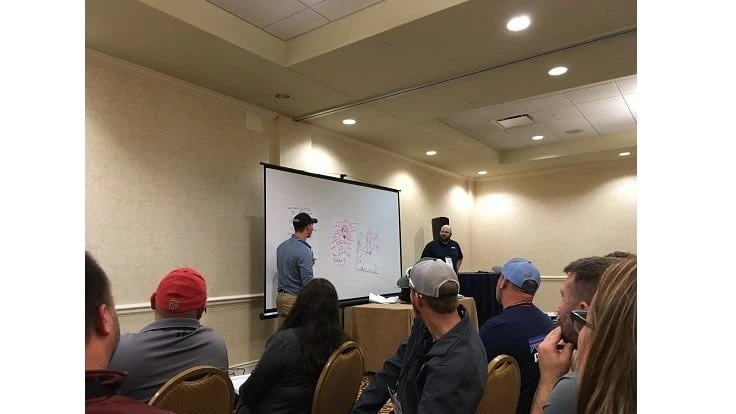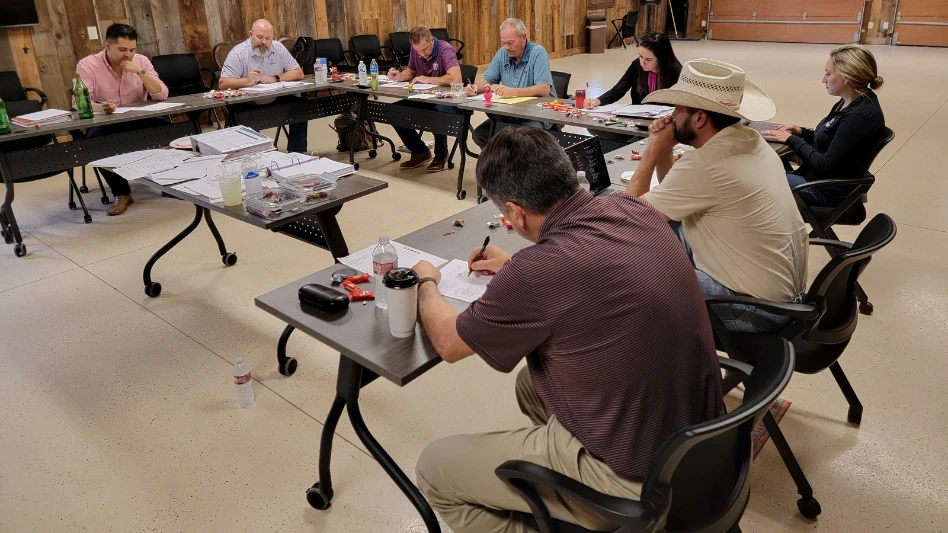
NASHVILLE – Lawn care operators from across the country descended on Nashville, Tennessee for Real Green’s annual users conference – Solutions 2020. The event is designed to not only educate Real Green customers about the software, but also to help attendees with general business lessons. The 20th anniversary of the event took place at the Gaylord Opryland Resort & Convention Center. Below are some takeaways from educational sessions.
Find that ‘super’visor. One problem that plagues a lot of companies is the method in which they promote employees. You take a field worker or salesperson who excelled at that role and then promote them to a supervisor position, but you may later find they don’t have great leadership skills.
“That’s especially easy to do when you are in the middle of peak season and you lose someone,” says Chuck Williams, contact center manager at Senske Services based in Washington. But Williams says leadership skills can be taught. Here are three points to help you create the ideal supervisor.
- Interpersonal skills – This is the ability to connect to people and then connect them to something productive. One way to do this is by genuinely expressing appreciation for someone’s work with details. Williams uses the Situation, Behavior and Impact Tool – for example, expressing gratitude to an employee who, during a busy time (situation), completed extra tasks efficiently (behavior) and it helped everyone get caught up on the work (impact).
- Conflict management – Conflict is normal and necessary for growth because that means there are people in the room who want to succeed. Conflict is unhealthy when it’s not managed properly, Williams says. Properly managed conflict is one of the most beneficial things for an organization, and if you don’t want someone to disagree with you, you aren’t a leader, Williams says. When dealing with conflict, do your best to take emotions out of it.
- Communication – Employees want to know what’s going on, and if you don’t fill in the blanks, they will fill the blanks in with the worst-case scenarios possible, Williams says. Keeping people in the dark will lead to fear, which isn’t productive.
Keep knocking. With restrictions on telemarketing, like the national “do not call” list, old fashioned door-to-door sales are still a viable way to get new customers, says Ken White, owner of Hometown Pest & Lawn in Michigan.
“It can be fun and it can be frustrating,” White says of going door-to-door.
But before you or your employee start knocking, make sure you know the door-to-door solicitations rules of the area you are canvassing. Not only will it keep you from a meeting with the police, it could save you time.
“Door-to-door isn’t for every city. If it’s difficult to get a permit, that could mean the people in the city don’t want door-to-door sales,” White says.
Before you start canvassing a neighborhood, mail a brochure the week before you knock and place signs in the area a few days before walking. White says you can have salespeople with the company serve as the canvassers, or you can hire hourly employees specifically for the job.
If you go the latter rout, put a supervisor who spends five hours a day focusing on this aspect of your business – recruiting, role playing, organizing pickups and drop-offs, facilitating daily and weekly meetings.
White recommends going door-to-door over a 12-week period with work starting 3-4 weeks before production begins or when the sidewalks are clear of snow. Shoot for 6-7 days a week, with the option of avoiding Sunday. If you are going to door-to-door on a Saturday, have a truck in the neighborhood to service lawns that day if a sale is made. Don’t ask people to go door-to-door for more than a few hours since it can get exhausting.
“It can be grueling work,” Smith says.
You should have three teams of two with one person on each side of the street. Instruct them never to go into the house. The door-knockers could be the ones doing the selling, or they can just serve as the initial point of contact to inquire if the homeowner wants to meet with a salesperson. If so, Thomas says sometimes he can have a salesperson ready to visit the potential client later that day.
Smith buys company shirts for the canvassers to wear as part of a uniform and they are not allowed to wear sunglasses.
“It’s going to be our first impression,” he says.





